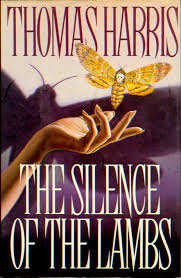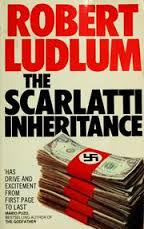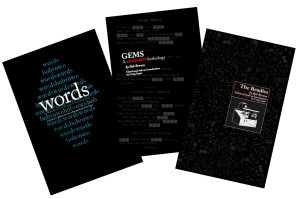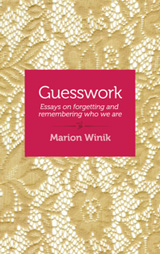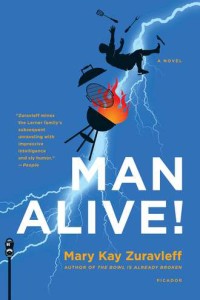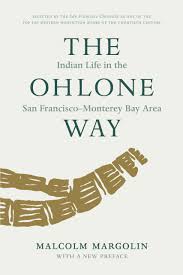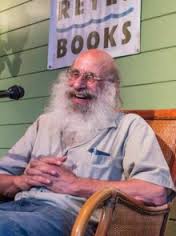David Wilk talks with editor/writer Richard Marek
April 5, 2015 by David
Filed under Publishing History, PublishingTalks
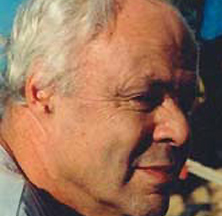 Publishing Talks began as a series of conversations with book industry professionals and others involved in media and technology about the future of publishing, books, and culture. As we continue to experience disruption and change in all media businesses, I’ve been talking with some of the people involved in our industry about how they believe publishing might evolve as our culture is affected by technology and the ebb and flow of civilization and economics.
Publishing Talks began as a series of conversations with book industry professionals and others involved in media and technology about the future of publishing, books, and culture. As we continue to experience disruption and change in all media businesses, I’ve been talking with some of the people involved in our industry about how they believe publishing might evolve as our culture is affected by technology and the ebb and flow of civilization and economics.
I’ve now expanded the series to include conversations that go beyond the future of publishing. I’ve talked with editors and publishers who have been innovators and leaders in independent publishing in the past and into the present, and will continue to explore the ebb and flow of writing, books, and publishing in all sorts of forms and formats, as change continues to be the one constant we can count on.
It’s my hope that these conversations can help us understand the outlines of what is happening in publishing and writing, and how we might ourselves interact with and influence the future of publishing as it unfolds. This new interview reflects my interest in the history of independent literary publishing, an area in which I have been active for a long time. And this particular conversation reflects some longstanding personal relationships as well.
Richard Marek’s career in publishing began as an acquiring editor at Macmillan; he went on to World Publishing in 1967, and became Editor-in-Chief at The Dial Press in 1972. He acquired the manuscript of a first novel called The Scarlatti Inheritance by the then unknown author named Robert Ludlum, worked on it with him for over two years, and of course it later became a national bestseller. Marek edited Ludlum’s next eight books, including The Bourne Inheritance. He acquired and edited books by more than 100 writers, including James Baldwin, Mira Rothenberg, John Yount and David Morrell. In 1978, he was given his own imprint (“Richard Marek Publishers”) at G.P. Putnam’s, and moved it to St. Martin’s Press (“St. Martin’s/Marek”) where, among many other books, he acquired Thomas Harris’ The Silence of the Lambs and Robert Greysmith’s Zodiac. In 1989, Marek became President and Publisher of E.P. Dutton, where he edited a number of bestselling books.
After Dutton became a subsidiary of Viking/Penguin, Marek moved to Crown as Editor-at-Large and thereafter became an independent editor, evaluating manuscripts, editing and ghostwriting, which he calls “a glorious and rewarding career.”
In the past 10 years, he has edited some 120 books, working for publishers, agents, and unrepresented writers. And he has also become an in-demand ghostwriter. He reports that he enjoys writing mornings and editing during afternoons.
Richard is now the ghostwriter of fourteen books, fiction and nonfiction, among them Trisha Meili‘s I Am the Central Park Jogger (a national bestseller), James Patterson’s Hide and Seek (a national bestseller), Brian Weiss’ Same Soul, Many Bodies, Ilanna Rubenfeld’s The Listening Hand, David Grand’s Emotional Healing at Warp Speed, and David Hackworth’s Steel My Soldiers’ Hearts.
And I am happy to say that I have had the opportunity to publish a lovely novel authored by Richard and his wife, the writer Dalma Heyn. It’s a love story for grown ups called A Godsend.
Dick is an active member of the Independent Editors Group – more about him and that organization here.
For this Publishing Talks series, I thought it would be fun and valuable to talk to Dick about the past, present and future of publishing from his unique perspective. His long and successful experience in commercial and literary publishing as editor, publisher, and now writer, provides him with an amazing depth of knowledge and an unending well of anecdotes and stoies. What he has to say during our conversation in his home will not disappoint. He is a great conversationalist with important things to say about book publishing.
Podcast: Play in new window | Download
Robin Antalek: The Grown Ups (a novel)
March 22, 2015 by David
Filed under Fiction, WritersCast
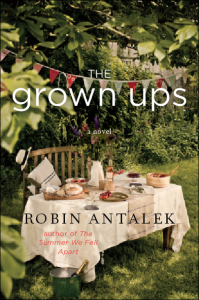 978-0-06-230247-2 – William Morrow – 384 pages – trade paperback- $14.99 (ebook editions available at lower prices)
978-0-06-230247-2 – William Morrow – 384 pages – trade paperback- $14.99 (ebook editions available at lower prices)
I genuinely enjoyed this evocative coming-of-age novel. I thought it captured the current generation of almost-thirty somethings really beautifully. It’s well written and well structured and very sympathetic on a number of levels for a wide range of readers.
The book starts with the central character in this faceted story, Sam Turner, in the summer he is fifteen, the crucial and in some ways defining moment in his life. Just as he connects with Suzie Epstein, the gorgeous girl next door, his mother abandons his family without warning or explanation. While his older, hard working brother Michael, who is a freshman in college and their attorney father both appear to accept her absence as a matter of course, Sam cannot. He is confused, and more deeply hurt by his mother’s departure and struggles to understand how she could simply disappear and leave her family behind. And at the same time, Suzie’s family suddenly moves away as well. This sense of loss is something he will carry with him throughout the rest of the story.
From this opening, the rest of the book covers the years as Sam and his friends (and brother) grow into adulthood. As one might expect, life is complicated, shit happens, good and bad, and life goes on. Author Antalek navigates this territory brilliantly, telling the stories of the key characters in alternating voices.
Suzie has her own family issues, and remains separated from her old friends for many years. Then a chance meeting with Michael reunites her with Sam and her former best friend Bella, whose first love was Sam. The Grown Ups explores the complicated process of growing up in the modern world. And through it all, we come to understand and appreciate the way her characters handle what it means for them to take on the mantle of adulthood. For most of us, it seems this is how growing up really works, accidents mixed with intentions to create being, meaning, and love. This book is a rewarding read, and one I thoroughly enjoyed. And I felt the same way talking to author Antalek about her book. We had a very fun time talking together about the writing of this book, her characters and life in general.
Robin Antalek is also the author of The Summer We Fell Apart (HarperCollins 2010) which was chosen as a Target Breakout Book. Her non-fiction work has been published at The Weeklings, The Nervous Breakdown and was been featured in several collections, including The Beautiful Anthology, Writing off Script: Writers on the Influence of Cinema, and The Weeklings: Revolution #1 Selected Essays 2012-2013. Her short fiction has appeared in 52 Stories, Five Chapters, Sun Dog, The Southeast Review and Literary Mama among others. Robin has received three honorable mentions in Glimmer Train’s Family Matters and New Fiction Writer’s contests as well as an honorable mention for the Tobias Wolf Fiction Award.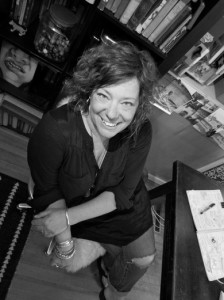
Podcast: Play in new window | Download
Bradford Morrow: The Forgers (a novel)
March 5, 2015 by David
Filed under Fiction, WritersCast
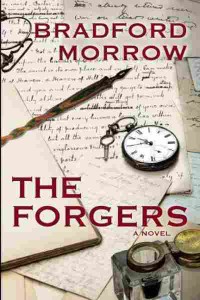
978-0802123213 – Mysterious Press – 258 pages – Hardcover – $24.00 (ebook editions available at lower prices)
Brad Morrow is really an excellent writer, mainly of literary fiction, and as listeners of Writerscast will likely know, I have interviewed him twice before, once for the fine novel, The Diviner’s Tale (2011) and again for Publishing Talks about his now 25 year old literary magazine, Conjunctions.
The Forgers is a complex and finely crafted mystery novel. It is pretty clearly Brad’s homage to the form, one which I assume he loves, and the writing style demonstrates just how much in command of his craft he is.
I myself am not generally a reader of mysteries and detective novels, though I appreciate a good one. So I am not as familiar with the intricacies of the form as are those who read deeply in this genre. One reviewer I read observed that The Forgers follows the form of one of Agatha Christie’s most famous novels. Well it might. As I read the book, the writing style reminded me of early twentieth century English writers. Because its main character is a both a literary forger and a dedicated bibliophile, and much of the book’s action takes place in Ireland, it has a decidedly British feel to it.
But it is an American story, and as such a grisly murder that opens the book is at its center. The setting for much of the novel is the farthest reach of Long Island, an isolated area that is perfect for this sort of crime.
The main character is one of those quirky characters that inhabit mysteries and suspense novels. He’s very compelling, but he keeps his distance, to say the least. Morrow knows the world of books and collectors, as he is one himself, but I don’t think anyone would mistake his main character for an authorial stand in. At least I hope not. The narrator takes us through a tangled web of a story, and while we get to know him, much is left to mystery.
Readers will enjoy the slow, building pace of the novel, and the payoff that comes at the end. It’s a fun book to read, and as I said earlier, beautifully written by a masterful writer.
Brad Morrow has written a number of fine novels, teaches at Bard College, founded and still edits the literary journal, Conjunctions, and has won many awards for his work. If you have not read his work before now, you should! And The Forgers would be a good book to start with. Author website here.
It’s always a great pleasure to speak with Brad about his work. He’s a great conversationalist and very easy to talk to, and I think our discussion about The Forgers will be much enjoyed by listeners.
The Forgers is remarkable. Bradford Morrow is remarkable. The Real Thing, which is rare on this earthly plane.
—Michael Cunningham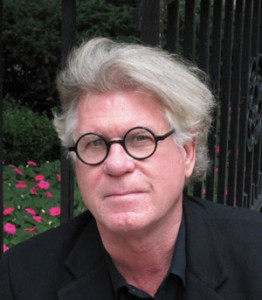
Podcast: Play in new window | Download
David Wilk talks with Doug Messerli of Green Integer
February 21, 2015 by David
Filed under Ebooks and Digital Publishing, Publishing History, PublishingTalks
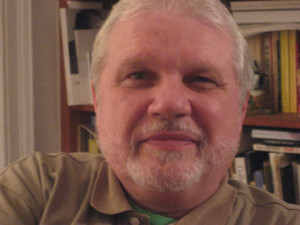 Publishing Talks began as a series of conversations with book industry professionals and others involved in media and technology about the future of publishing, books, and culture. As we continue to experience disruption and change in all media businesses, I’ve been talking with some of the people involved in our industry about how publishing might evolve as our culture is affected by technology and the larger context of civilization and economics.
Publishing Talks began as a series of conversations with book industry professionals and others involved in media and technology about the future of publishing, books, and culture. As we continue to experience disruption and change in all media businesses, I’ve been talking with some of the people involved in our industry about how publishing might evolve as our culture is affected by technology and the larger context of civilization and economics.
I’ve now expanded the series to include conversations that go beyond the future of publishing. I’ve talked with editors and publishers who have been innovators and leaders in independent publishing in the past and into the present, and will continue to explore the ebb and flow of writing, books, and publishing in all sorts of forms and formats, as change continues to be the one constant we can count on.
It’s my hope that these Publishing Talks can help us understand the outlines of what is happening in publishing and writing, and how we might ourselves interact with and influence the future of publishing as it unfolds.
Douglas Messerli is an old friend in poetry and publishing – I’ve known him since sometime in the late 1970’s. He’s one of the most prolific writers and publishers I know of, with an encyclopedic mind and a scope of interests that is virtually unmatched (and how much he writes and how well…it is hard for me to fathom how he does so much and is so consistently intelligent and perceptive on so many subjects!)
Although his writing is inevitably interwoven with his publishing work, this conversation is mainly focused on Doug’s efforts over the years as an editor and publisher. So we talked about his first publishing projects, Sun & Moon (magazine and books), La-Bas (magazine) and then his more recent work with the highly prolific Green Integer. It’s a wide ranging conversation reflecting Doug’s broad interests in writing, art, and publishing, and his always deeply engaged intellect.
Doug, his partner Howard Fox, and Green Integer are strongly identified with Los Angeles and the literary and art scene there. But the influence of his work extends worldwide. The level and intensity of engagement with readers, writers and artists reflects an intentional process on Messerli’s part – he invites the reader to participate in every aspect of his creative process, both in writing and in presenting the work of innovative writers and artists across a wide range of aesthetics and backgrounds, generations and geography. That’s why, for a long period of time, Messerli ran a public gallery and salon in Los Angeles to reach beyond publishing, and why Green Integer is so thoroughly digital in its publishing model.
His is a decidedly modern, globally engaged effort that is unmatched in contemporary publishing.
Length alert: this interview is almost exactly an hour long. It went by really fast for me, and I hope you find listening to Doug Messerli as interesting as I did.
The Green Integer website is exceptional. Go there now for an incredible array of interesting, complicated and challenging writing with a deeply international and avant garde focus.
A nice bit of Sun & Moon history here at SUNY Buffalo’s archive.
And a wonderful collection of free PDFs of La-Bas here at the incredibly rich Jacket2 website.
I love Doug’s essay on Bob Brown (a poet I first heard of through Jerry Rothenberg) on a website I recommend visiting right away –Hyperallergenic.
And to extend the conversation further, here is an exceptionally interesting interview published on Harriet, the blog of the Poetry Foundation (which recursively enough is entitled: Republished Douglas Messerli Interview on Green Integer Blog).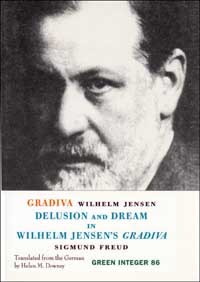
Podcast: Play in new window | Download
Marion Winik: Three books
February 8, 2015 by David
Filed under Non-Fiction, WritersCast
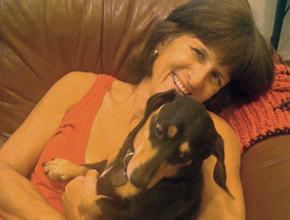 This interview with the talented essayist Marion Winik is unusual, as it is about three different (short) books Marion has published with the relatively new digital publisher SheBooks (“Every Woman Has a Story”). Since Winik, for a long time composed audio essays for NPR’s “All Things Considered” (archived here), she is pretty smart about doing interviews, so I thought we would be able to cover these three books, as well as talking a bit about SheBooks and Marion’s career as writer. I think she did a great job on all counts. I’d recommend a visit to her website too, lots of links, current information, and general literary goings on.
This interview with the talented essayist Marion Winik is unusual, as it is about three different (short) books Marion has published with the relatively new digital publisher SheBooks (“Every Woman Has a Story”). Since Winik, for a long time composed audio essays for NPR’s “All Things Considered” (archived here), she is pretty smart about doing interviews, so I thought we would be able to cover these three books, as well as talking a bit about SheBooks and Marion’s career as writer. I think she did a great job on all counts. I’d recommend a visit to her website too, lots of links, current information, and general literary goings on.
The three short books from SheBooks we talk about in this interview, all of which reflect Marion’s wonderful wit and stylish writing:
August in Paris is a collection of travel stories told with great humor and affection, “from lost teenagers and missed connections to overpriced drinks and gambling mishaps.” I don’t know how she does it, but she keeps her bearings throughout.
The End of the World as We Know It collects nine essays about parenting and family, beginning with the story of her second wedding and subsequent move to rural Pennsylvania. She covers a broad range of subjects, from blended families, to having kids in her 40’s and eventually to dealing with the legal problems that sometimes arise with teenage boys. Very much along the lines of her NPR pieces.
Guesswork is a collection of essays about memory and identity. One of my favorites, ”The Things They Googled” looks at search engines and their effects on our lives. These eight essays will inspire you to reconsider your own history and sense of self from new angles: how treasured places and objects fit in, how your life as a reader shapes who you are.
You can purchase these and other books directly from SheBooks (they already have a really extensive and impressive list of publications) here or from Barnes & Noble, Amazon and probably other ebook retailers, all at reasonable prices. Buy direct and you support the publisher and its authors.
Marion Winik’s (very abbreviated) biography in her own words:
“I was born in Manhattan in 1958 and raised on the Jersey shore. I graduated from Brown in 1978 and got my MFA from Brooklyn College in 1983.
Throughout my childhood and into my twenties, I wrote poetry. Some of it was published in two small-press books. In the late eighties—by which time I was living in Austin, Texas with my first husband, Tony—I began writing personal essays.
These days I live with my daughter Jane and our dachshund, Beau, in the beautiful Evergreen neighborhood of Baltimore. What a fabulous, underrated town this is. I teach writing in the MFA program in Creative Writing & Publishing Arts at the University of Baltimore. I write a column at BaltimoreFishbowl.com, and have a new memoir from Globe Pequot Press. It’s called Highs in the Low Fifties: How I Stumbled Through The Joys of Single Living.”
And here is something about the digital publishing start up, Shebooks: a curated collection of short e-books written by women, for women. All of our stories are easy to download and read on any digital device—and so good you’ll finish them in an hour or two. We like to think of ourselves as an e-book boutique, the kind where you’ll always find a story to fit your busy life.
Whether short fiction, memoir, or journalism, all Shebooks are handpicked by discerning magazine and book editors and written by women you either know of or will want to know. And because we offer our e-books by subscription as well as individually, you need never be without a great story to read.
As anyone who listens to WritersCast knows, I’m always interested in new publishing models. SheBooks certainly represents one of those new models. I think we will revisit them in a little while to see how this venture turns out. I hope it works – we need more digital publishing that tries to break out of the existing structures and models to try out different approaches to engaging with readers.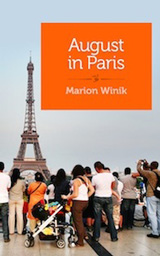
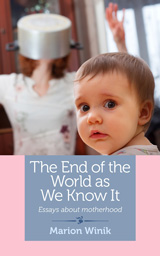
Podcast: Play in new window | Download
David Wilk talks with Dominique Raccah of Sourcebooks
February 1, 2015 by David
Filed under Ebooks and Digital Publishing, Publishing History, PublishingTalks, Technology, The Future
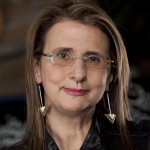 Publishing Talks began as a series of conversations with book industry professionals and others involved in media and technology about the future of publishing, books, and culture. As we continue to experience disruption and change in all media businesses, I’ve been talking with some of the people involved in our industry about how publishing might evolve as our culture is affected by technology and the larger context of civilization and economics.
Publishing Talks began as a series of conversations with book industry professionals and others involved in media and technology about the future of publishing, books, and culture. As we continue to experience disruption and change in all media businesses, I’ve been talking with some of the people involved in our industry about how publishing might evolve as our culture is affected by technology and the larger context of civilization and economics.
I’ve now expanded the series to include conversations that go beyond the future of publishing. I’ve talked with editors and publishers who have been innovators and leaders in independent publishing in the past and into the present, and will continue to explore the ebb and flow of writing, books, and publishing in all sorts of forms and formats, as change continues to be the one constant we can count on.
It’s my hope that these conversations can help us understand the outlines of what is happening in publishing and writing, and how we might ourselves interact with and influence the future of publishing as it unfolds.
Dominique Raccah is the founder and CEO of independent publisher Sourcebooks, based in Naperville, Illinois, which she began in 1987 after an earlier career in advertising. Reflecting Raccah’s background and interests, Sourcebooks has always been strongly oriented toward marketing and promotion, devoting countless hours and dedicating significant resources to research, intelligence and outreach, and to understanding what customers want. This significantly differentiates Sourcebooks from most other independent publishers, so many of whom are more focused on developing content as opposed to what the customer needs or wants.
But Raccah is more than a smart marketer. She is a highly capable business person, an active entrepreneur, and somewhat of a visionary in terms of technology, business structure. She has been and continues to be willing and able to pivot on her business models and plans much more quickly and readily than most of her peers.
At this stage, after more than a quarter century of successful innovation, she has become a thought leader in the book industry and her presentations about publishing and business structure and opportunities are often models of clarity and deep perception, that are valued by colleagues and competitors alike. In November 2013 she was named FutureBook’s Most Inspiring Digital Publishing Person of 2013.
Indicative of the ways Raccah has embraced technology to drive her business forward, in an interview with the Chicago Tribune last year she said that digital technology “has been transformative because it allows you to tackle new kinds of problems and create new ways of connecting books and readers.”
In our conversation, which took place in New York City in January, 2015, we covered a wide range of topics, from the history of Sourcebooks, through the present business and publishing landscape that interests and motivates Dominique as she continues to moves her company forward in a highly challenging environment. Much of our conversation focuses on Raccah’s industry leading efforts to work directly with readers to make Sourcebooks’ publishing brands meaningful to readers, and to learn directly what consumers want in their reading experiences. After a concerted effort over the past few years, Sourcebooks is now one of the leaders in the book industry in selling books directly to readers. It was a pleasure speaking with Dominique – who gives a great interview – and I hope this is a conversation that will be both useful and valuable to anyone interested in contemporary publishing.
Sourcebooks features a long list of innovative and successful publishing programs and projects, including Poetry Speaks, The Shakesperience, an interactive iBook that combines audio, video and a glossary to aid understanding of Shakespeare’s plays, and Put Me In The Story, which customizes children’s picture books with the reader’s own name and photos to get kids excited about reading.
Raccah has a master’s degree in quantitative psychology from the University of Illinois at Chicago Circle and worked at Leo Burnett’s quantitative research department before starting Sourcebooks in her home in 1987.
Sourcebooks now has 120 employees, eight imprints and publishes more than 350 titles annually, several of which have been national best-sellers in recent years.
Some worthwhile links:
Dominique’s TedX slideshare The Book in Transformation: A Publisher Vision for the Future
Chicago Tribune interview with Dominique Raccah
Mercy Pilkington article Sourcebooks Dominique Raccah Speaks on Driving Innovation
Put Me in the Story site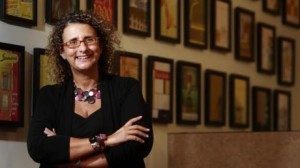
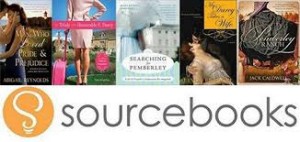
Podcast: Play in new window | Download
Mary Kay Zuravleff reading from “Man Alive” (a novel)
January 28, 2015 by David
Filed under AuthorsVoices
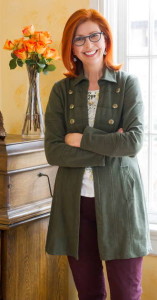 I interviewed Mary Kay about her wonderful novel, Man Alive! in May 2014. This is what I said about it then:
I interviewed Mary Kay about her wonderful novel, Man Alive! in May 2014. This is what I said about it then:
I loved reading this book. It has a great sense of humor, it’s complex without being too serious about itself, and a story that grabs you from the beginning and won’t let go. Mary Kay Zuravleff is a terrific writer, original and entertaining. And there’s a lot going on to keep you thinking throughout. Man Alive! tells a great story. There is a perfect summary of the book on her very active website in case you want to know the story without any risk of spoilers:
All it takes is a quarter to change Owen Lerner’s life. When lightning strikes the coin he’s feeding into the parking meter, the pediatric psychiatrist survives, except that now he only wants to barbecue. The bolt of lightning that lifts Dr. Lerner into the air sends the entire Lerner clan into free fall, and Man Alive! follows along at that speed, capturing family-on-family pain with devastating humor and a rare generosity. This novel explores how much we are each allowed to change within a family—and without.
This book is a fun read and I recommend it no matter what kind of fiction you like. It’s a funny book with a solid heart and great characters. And I am very happy that I recorded Mary Kay reading an excerpt from the book to add to the Authors Voices series. Since last year the book is out in paperback from Picador – 978-1250056054 – $16 (and ebook versions are still available at lower prices). I like the new cover too.
Podcast: Play in new window | Download
Earl Swift: Auto Biography
January 18, 2015 by David
Filed under Non-Fiction, WritersCast
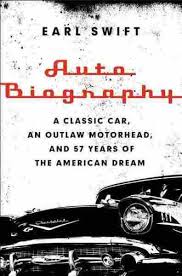 Auto Biography: A Classic Car, an Outlaw Motorhead, and 57 Years of the American Dream – 978-0062282668 – It Books (HarperCollins) – Hardcover – $26.99 – ebook versions available at lower price, paperback to be published March 17, 2015.
Auto Biography: A Classic Car, an Outlaw Motorhead, and 57 Years of the American Dream – 978-0062282668 – It Books (HarperCollins) – Hardcover – $26.99 – ebook versions available at lower price, paperback to be published March 17, 2015.
What a wonderful read this book is! The first thing you need to know is that I love old cars. I love stories about the people who love them, and rebuild them. But I also know that most old car stories are of limited interest to most people who don’t love old cars. Still – and yet – Auto Biography is much more than an old car story. Earl Swift is a terrific writer – trained as a journalist, which shows in his writing. He is clear and to the point. He never buries the lede. He gets close to the characters he writes about and portrays them brilliantly. And it’s impossible to put this book down once you get into the story, which just keeps going and going to a startling and rewarding end.
So yes, the book is about a car – a 1957 Chevrolet (one of the most iconic cars of our time) that Swift was able to trace from its first owner to its last. But it’s really about all the people who ever owned the car, and most crucially, it’s about Tommy Arney, the owner of the car when Swift begins his story. And Arney is a dream character for any writer, larger than life, complex and compelling. He is impossible to resist and Swift goes all the way in bringing us up close and personal with this incredible all-American character.
It was an incredible joy to read this book. As it happened, I was simultaneously reading a history of the automobile industry and for me, this book was by far the better book. It tells the story of what cars mean to our lives, how the cars we drive can capture our hearts and become our souls. I really enjoyed talking to Earl about this book and the story of how he came to write it is well worth listening to.
If you are interested in the way Americans live today, this book is one you must read. And if you just like a good story and you liked the way Hunter S. Thompson told them, this book ought to be perfect for you. Author website here, worth a visit.
“The story he tells of the car’s owners and, in particular, anti-hero protagonist Tommy Arney, is so detailed and informed by such thorough reportage I had to use Google to make sure Swift wasn’t embellishing — and I mean that as a compliment . . . . It’s the best contemporary book I’ve read about automobiles since A.J. Baime’s Go Like Hell, and I enjoyed the hell out of that.”
Matt Hardigree, Jalopnik.com
Longtime journalist Earl Swift wrote for newspapers in St. Louis, Anchorage, and for 22 years in Norfolk, where his long-form stories for The Virginian-Pilot were nominated five times for a Pulitzer Prize. Since 2012, he’s been a fellow of the Virginia Foundation for the Humanities at the University of Virginia.
He’s also the author of four other books of narrative nonfiction–THE BIG ROADS, a lively 2011 history of the interstate highway system and its effects on the nation it binds; WHERE THEY LAY: Searching for America’s Lost Soldiers, for which he accompanied an army archaeological team into the jungles of Laos in search of a helicopter crew shot down thirty years before (2003); JOURNEY ON THE JAMES, the story of a great American river and the largely untold history that has unfolded around it (2001); and a 2007 collection of his stories, THE TANGIERMAN’S LAMENT.
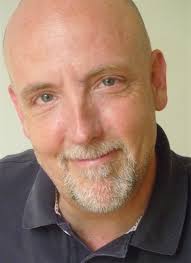
Podcast: Play in new window | Download
David Wilk talks with Malcolm Margolin of Heyday Books
January 11, 2015 by David
Filed under Publishing History, PublishingTalks
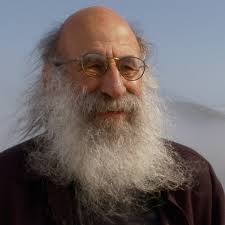 I think of Malcolm Margolin and Heyday Books as one of the iconic independent publishers of the modern era. Founded in 1974 in Berkeley, then and now a hotbed of independent publishing, Heyday began because Malcolm had written a book about walking in the East Bay called East Bay Out and wanted to publish and sell it himself as a locally based book. Its somewhat unexpected success led to his work on a book called The Ohlone Way, about native Americans of California, and by then Heyday was on its way to becoming an important cultural node that over its forty years has produced more than 350 titles.
I think of Malcolm Margolin and Heyday Books as one of the iconic independent publishers of the modern era. Founded in 1974 in Berkeley, then and now a hotbed of independent publishing, Heyday began because Malcolm had written a book about walking in the East Bay called East Bay Out and wanted to publish and sell it himself as a locally based book. Its somewhat unexpected success led to his work on a book called The Ohlone Way, about native Americans of California, and by then Heyday was on its way to becoming an important cultural node that over its forty years has produced more than 350 titles.
The history of Heyday is documented in its newly published The Heyday of Malcolm Margolin: The Damn Good Times of a Fiercely Independent Publisher. The book, compiled by Heyday editor Kim Bancroft, is a wonderful collection of oral histories told by Margolin, his family, authors, friends, current and former staffers and some of the many Californians that have been involved with the press and its cultural work for so many years.
This book is a must read for anyone interested in the history of independent publishing and especially the inspiring Bay Area publishing movement of the last half century. Malcolm is truly one of the great story tellers of our time. Unassuming and irreverent, he is now experienced enough to have become an elder statesman, much loved by all who have worked with him.
Heyday is now a well-run and highly respected nonprofit organization. It has produced a significant body of work, and as an ongoing operation, it reflects the values and beliefs of its founder. Heyday, like Malcolm, is committed to the voices of authors, the beauty and power of California as place, and valuing culture as lived by individuals, more important than institutions. And the quality of the work has always been paramount. Every book produced by Heyday displays a high level of care and attention, learned and practiced over many years.
Heyday board member and former staffer Patricia Wakida describes the quintessential image of Margolin getting into his 1997 Volvo to drive to California’s high country to hear yet another story around the campfire. “That’s what it’s all about,” she says. “Forty years of listening.”
I’m proud to offer this conversation with Malcolm, which gives you the singular opportunity to hear his wonderful voice and persona, to get a sense of why Malcolm and Heyday are so important and meaningful to so many – and what an impact a truly independent publisher can have.
Running time: 47 minutes. Enjoy!
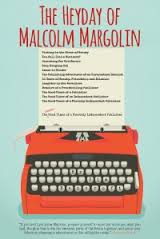
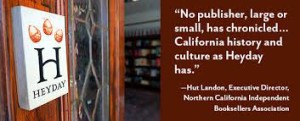
Podcast: Play in new window | Download
Lin Enger: The High Divide: A Novel
January 4, 2015 by David
Filed under Fiction, WritersCast
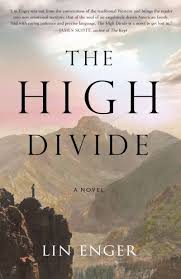 The High Divide: A Novel – 978-1616203757 – Algonquin Books – Hardcover – $24.95 – ebook versions available at lower prices. Paperback edition due to be published in 2015.
The High Divide: A Novel – 978-1616203757 – Algonquin Books – Hardcover – $24.95 – ebook versions available at lower prices. Paperback edition due to be published in 2015.
This is a wonderful novel, set in a period and place I have long been drawn to, the northern plains of the late 19th century. In The High Divide, Enger tells the story of a family – father, mother and two young sons – who are living a typical hard life in Minnesota. One day Ulysses Pope, the father walks out and when he fails to return, his family must try to cope, and of course, try to understand why he left and where he has gone. Driven by a desperate need to know more, the two sons set out to find him, leaving their mother, Gretta, at home to worry about her family, and then herself to set out on her own journey, now to search for her missing family.
Their searches lead them to the rough frontier country of Montana, that still reverberates with the terrible era of conquest of American Indians and destruction of the buffalo, massive changes in land and culture. Gretta must grapple with the possibility of losing her husband to another woman, and the boys must decide where their loyalties lie, and what they must do to save their family. Ultimately, the father’s secret must be uncovered, his story told, and the family come to terms with their history, in order to be able to go on. In my discussion with Lin, we covered alot of interesting territory. I very much enjoyed our conversation and the opportunity to talk to him about this excellent book and his thinking about writing.
The High Divide is a confidently told and powerful story, set in a period when modern terms of psychological awareness and emotional understanding did not exist. All the characters are ultimately trying to come to terms with the damage done by war and violence. Enger is fully in command of his story and characters, and pulls the reader through to a well earned climax. I really enjoyed this book, and am happy to have discovered a writer whose work I will now be following with interest.
Lin Enger
I grew up in Minnesota, have spent most of my life in the state, and now live in Moorhead, where I teach English at Minnesota State University. Over the years I have received several awards for my fiction: a James Michener Fellowship, a Minnesota State Arts Board Fellowship, a Jerome travel grant, and a Lake Region Arts Fellowship. I have an MFA from the Iowa Writers’ Workshop, where I was a Teaching-Writing Fellow. My first novel, Undiscovered Country, was published by Little, Brown and Company in 2008. My short stories have appeared in Glimmer Train, Ascent, Great River Review, American Fiction, and other journals. During the 1990s my brother, the novelist Leif Enger, and I had a great time collaborating (as L. L. Enger) on a series of mystery novels for Pocket Books.
“The High Divide is a deeply moving, gripping novel about one man’s quest for redemption and his family’s determination to learn the truth. Written with lean, crisp prose, Enger seamlessly blends historical events with the personal, and deftly pulls the reader into America’s Great Plains during the 19th Century. The narrators’ voices are captivating, and I was spellbound by the author’s ability to express the human condition and especially the complicated bonds between fathers and sons. Layered with meaning, this remarkable novel deserves to be read more than once. The High Divide proves Enger’s chops as a masterful storyteller.” —Ann Weisgarber, author of The Promise
“The High Divide, a novel about a family in peril, is haunting and tense but leavened by considerable warmth and humanity. Lin Enger writes with durable grace about a man’s quest for redemption and the human capacity for forgiveness.”
—Benjamin Percy, author of Red Moon
“Lin Enger sets out from the conventions of the traditional Western and brings the reader into new emotional territory, that of the soul of an exquisitely drawn, American family. Told with caring patience and precise language, The High Divide is a novel to get lost in.”
—James Scott, author of The Kept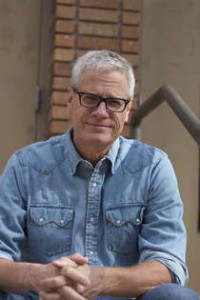
Podcast: Play in new window | Download

